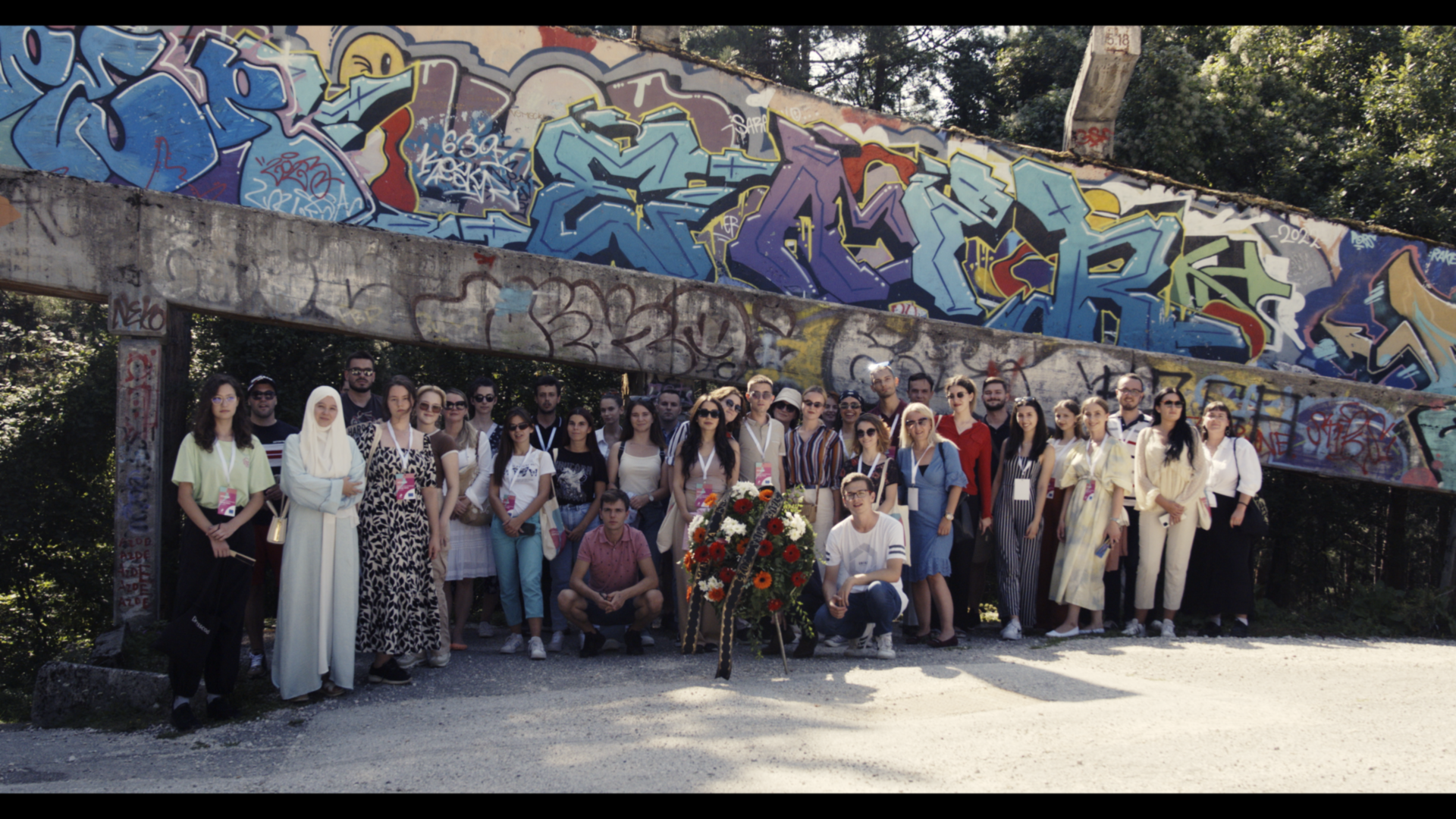
Participants of the Youth Academy for “State of Peace,” organized by the European Union in Bosnia and Herzegovina and the Post-Conflict Research Center (PCRC), who come from Croatia, Serbia, Montenegro, and Bosnia and Herzegovina, paid their respects to civilian war victims through a series of commemorations in Tuzla, Brčko, Sarajevo, and Vitez. Relying on the …
Participants of the Youth Academy for “State of Peace,” organized by the European Union in Bosnia and Herzegovina and the Post-Conflict Research Center (PCRC), who come from Croatia, Serbia, Montenegro, and Bosnia and Herzegovina, paid their respects to civilian war victims through a series of commemorations in Tuzla, Brčko, Sarajevo, and Vitez.
Relying on the legal legacy of national and international courts for war crimes in the former Yugoslavia, young people have been acquainted with the facts about the committed crimes, thus becoming more actively involved in the process of confronting the past.
Velma Šarić, the president and founder of the PCRC, stated that a special component of the Youth Academy concerns commemorating civilian war victims because the process of confronting the past cannot be sustained consistently if young people are not involved.
“In Bosnia and Herzegovina, there is no state law regulating the way civilian war victims should be commemorated. In addition, permits for the construction of monuments and memorial sites are granted by local authorities. This often puts us in a situation where the erected monuments convey messages of hatred and division, lacking an educational component and not being based on established legal facts regarding the committed crimes,” stated Šarić.
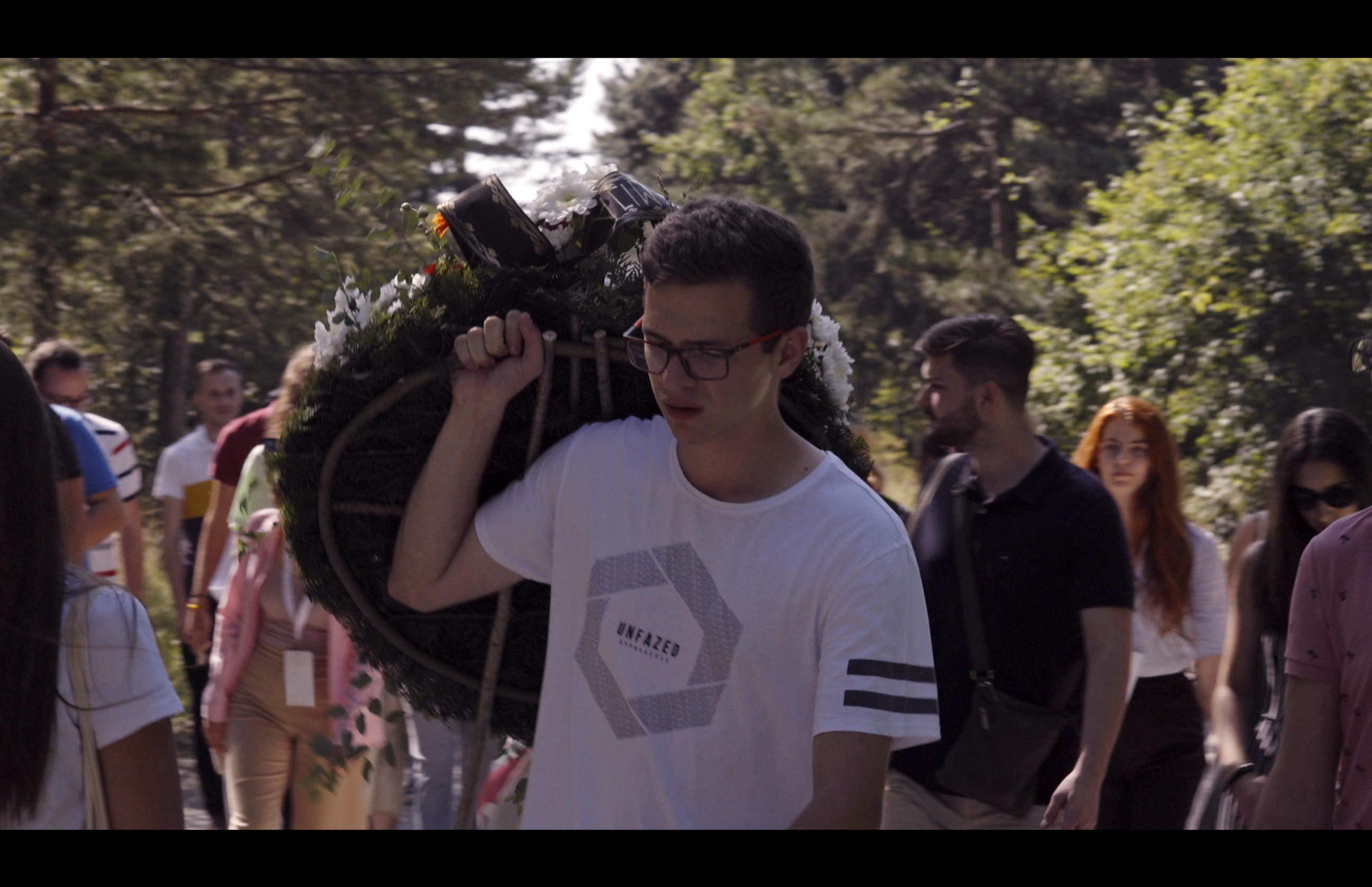
As Šarić explains, through the Academy program, it is realized that young people from the region are not familiar with what happened at the Tuzla Gate, which they visited, but also that young people from Bosnia and Herzegovina are unaware of the murder of eight children in Vitez, where they laid flowers at the ‘Osmica’ monument to pay their respects.
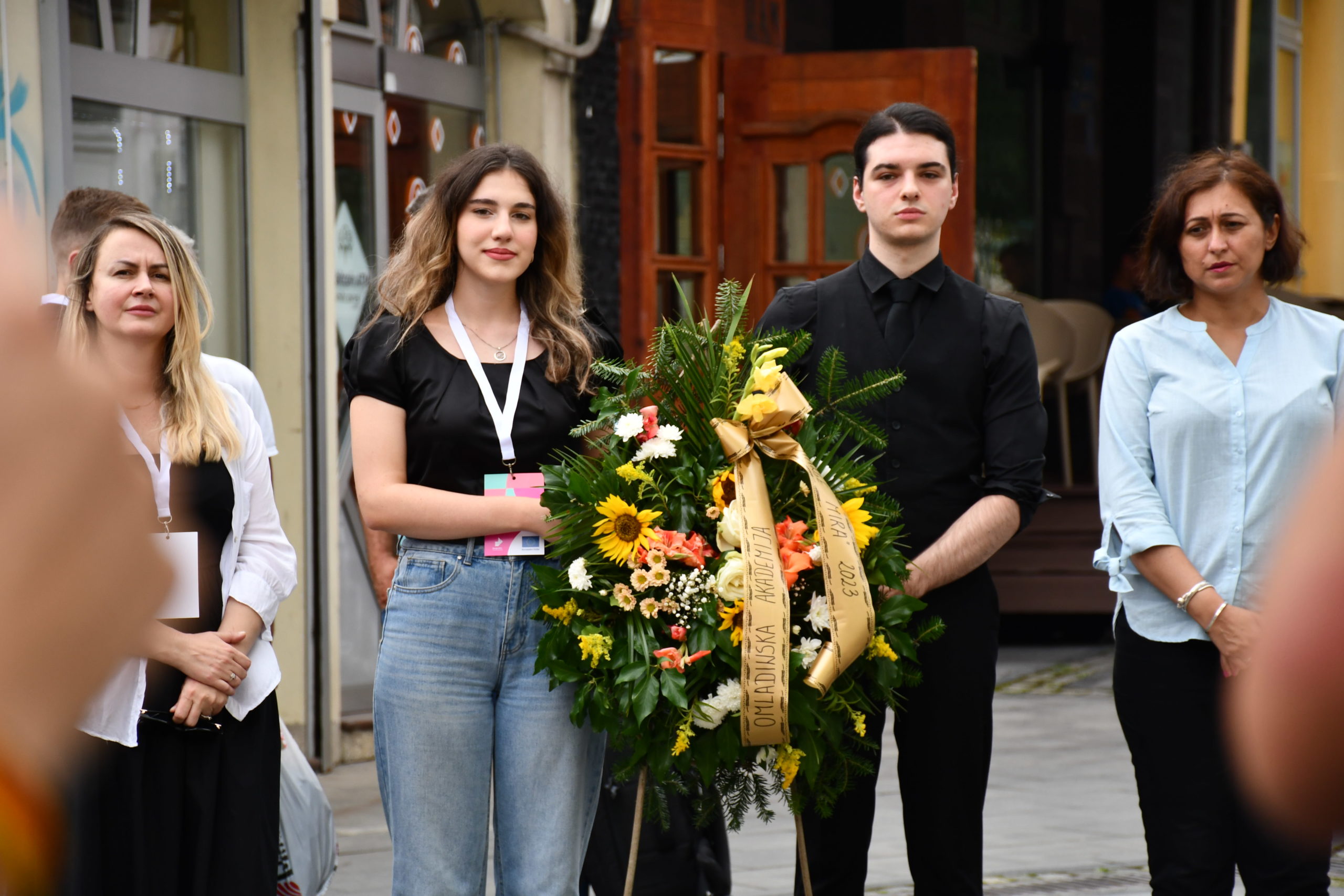
Participants of the Academy attempted to lay flowers and pay their respects at the Sarajevo Memorial for Serbian victims at the Kazani Pit, but due to the site’s disrepair and inaccessibility, they were unable to do so. All of this demonstrates the need to do more in the field of remembrance and memorialization, so that young people have access and the opportunity to learn about the history of our society.
In addition to the commemorations in Tuzla, Sarajevo, and Vitez, participants also paid their respects at the Memorial for Civilian War Victims in Brčko, alongside representatives of the city authorities.
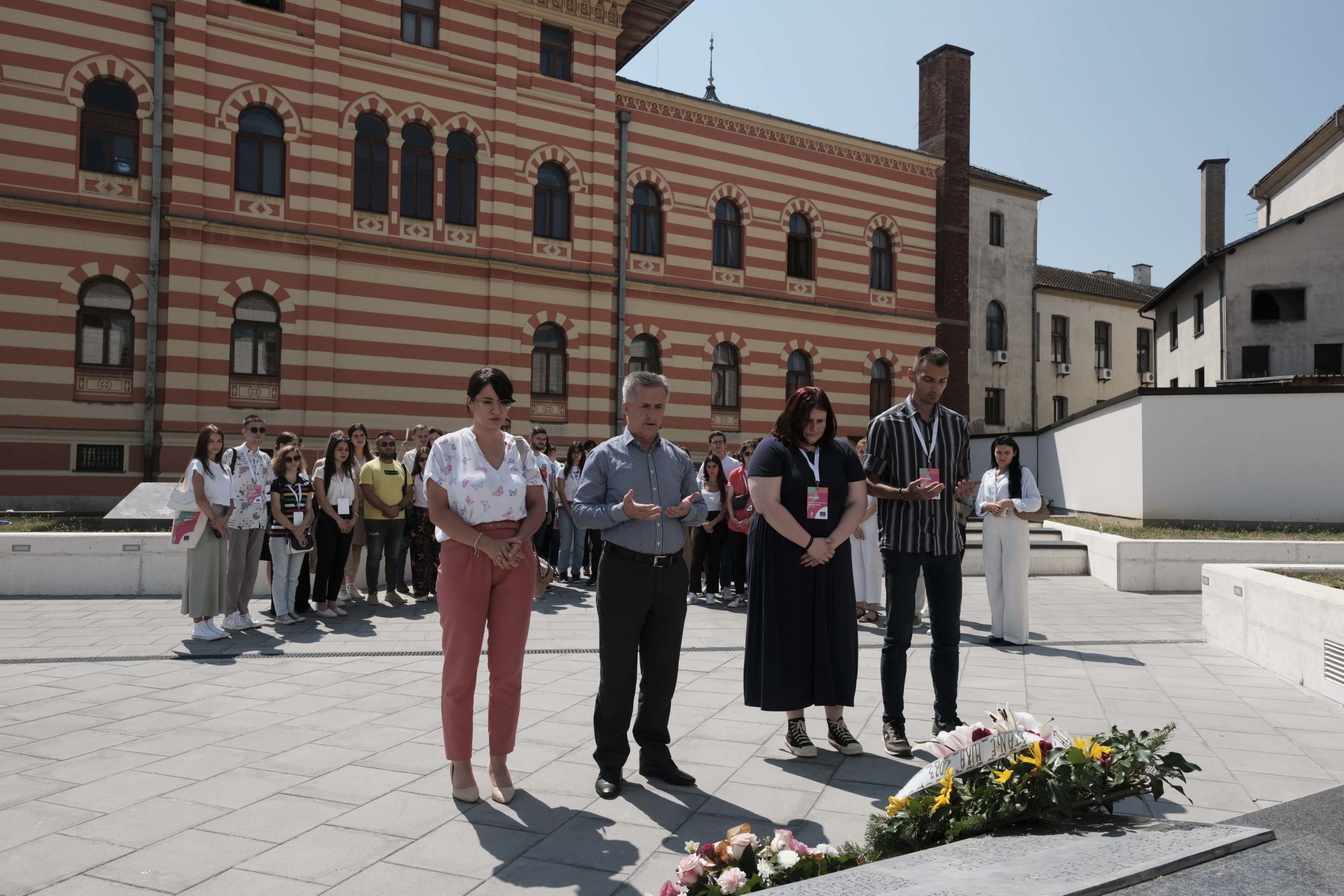
Tea Ružić, the advisor to the mayor of the Brčko District for youth and the non-governmental sector, stated that a shared monument for all war victims means that every tear is equal and as such is important in our history. “I think that with such a monument, we have sent a good message from Brčko because I can freely say that Brčko is an example of post-war reconciliation and coexistence.”
Respects were also paid to those killed at the Tuzla Gate, alongside Nataša Perić, the Chairperson of the Tuzla City Council, following which they watched the documentary film Kaprija 95′ produced by the PCRC.
Nikola Pavlović, a Youth Academy participant from Belgrade, emphasized that this was his first time in Tuzla and the first time he heard about the grenade that fell on the Gate. He is pleased that he can, on behalf of all Serbs, express condolences to the families of the deceased.
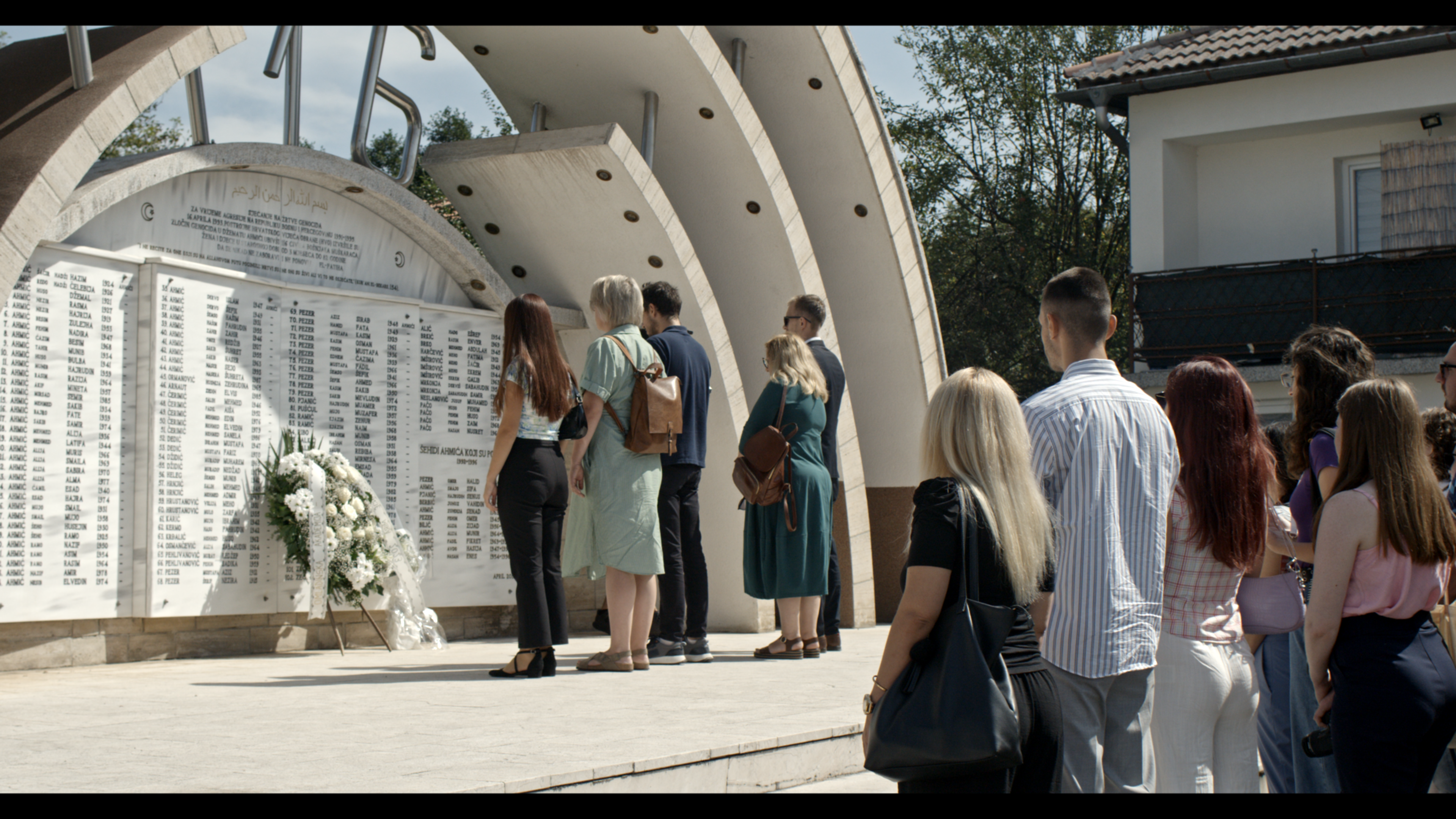
In Vitez, the youth paid their respects to the 116 murdered Bosniaks in the village of Ahmići and the eight murdered Croatian children in the “Osmica” memorial park. On this occasion, they spoke with Hazrudin Bilić, a survivor of the massacre, who shared with them his personal story and the facts about the attack on Ahmići. During the visit to the “Osmica” memorial park for the killed Croatian children, the youth had a conversation with Ivan Garić, whose sister was killed in this crime. He presented to the young people the efforts made by the families to preserve the memory of their loved ones.
Ahmo Mehmedović, a Youth Academy participant from Srebrenica, believes that memorialization is crucial in creating lasting monuments and memories for the innocent victims. “They carry a special dimension in coming to terms with the past, and it is important for young people to visit them and learn about the facts of wartime actions. Memorials should motivate the youth to protect the victims of war through various activities. With knowledge, emotion, and inspiration gained after visiting these memorials, I believe that the young generation will contribute to this.”
The importance of young people from different nations and ethnic backgrounds visiting sites of suffering for all groups was also emphasized by participant Lora Jurić from Đakovo. “I, too, didn’t grasp the depth of these stories. I used to see our military actions as the Croatian Liberation Movement, but now I see the bigger picture: that these were innocent people who didn’t know why they were dying or what they were fighting for, and they were all victims of a toxic mindset which believed that peace could be achieved through war.”





